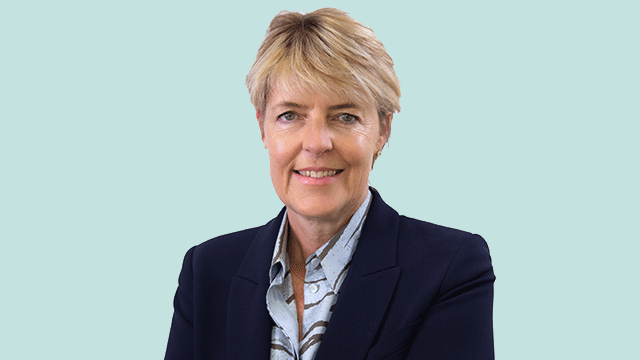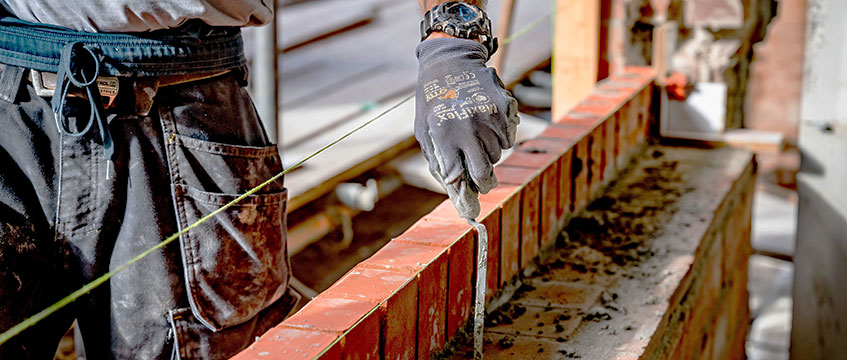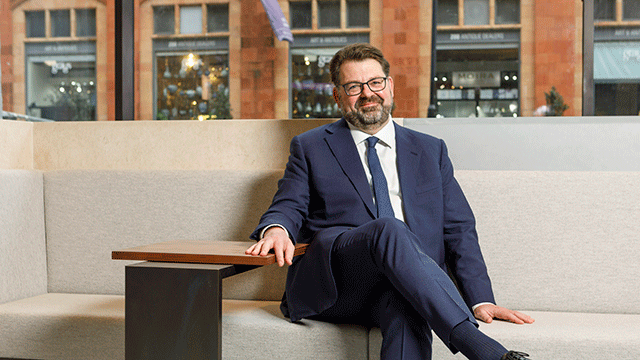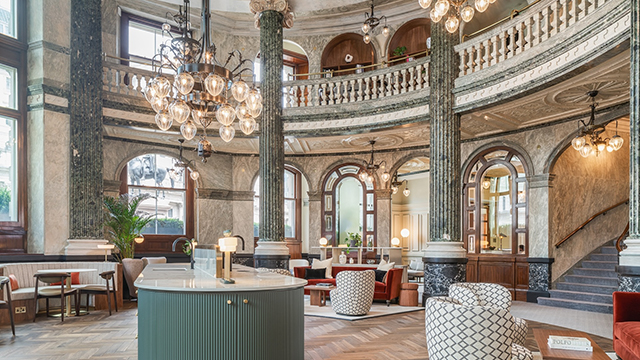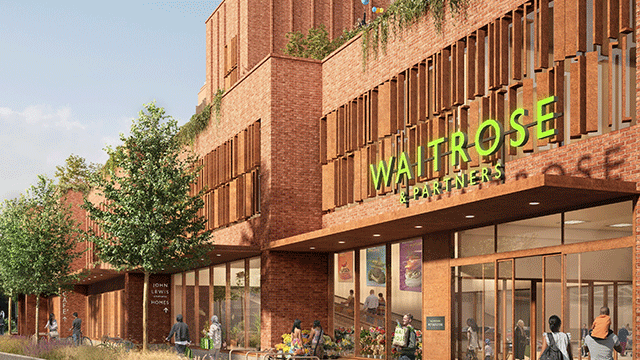For debt-light, equity-rich companies outside the eurozone hoping to build a European portfolio, the weak euro and increasing flow of cut-priced assets have created a window of opportunity that, for the moment at least, keeps getting wider.
Toronto-based and listed Dundee International REIT is one such company. It describes itself as “an unincorporated, open-ended real estate investment trust that provides investors with the opportunity to invest in commercial real estate exclusively outside of Canada” and is in the process of building a large portfolio in Germany. Although its IPO only took place in August 2011, that portfolio already stands at 12.8m sq ft (1.19m m2) and comprises offices, industrial and mixed-use properties spread throughout Germany. In May the company reported first quarter net rental income of C$20.7m (€16m).
The main reason for this accelerated growth was Dundee International’s €1bn acquisition, from Luxembourg-based Lone Star subsidiary Lorac Investment Management, of a portfolio of property largely occupied by the German postal service, Deutsche Post. The acquisition, which immediately followed the IPO, was paid for by the IPO proceeds of about C$410m together with funds from parents Dundee Corporation and Dundee Realty Corporation as well as loan financing.
Looking for more
Since then Dundee International has been actively looking for more property, but by March this year it was still the case that Deutsche Post had once owned all but one building in the portfolio, which still includes 200 Postbank branches.
However, in April the REIT closed deals worth around C$100m, adding about 480,000 sq ft (44,593 m2). This included a 99.74% stake in Grammophon Büropark in Hannover – built on the site of the former Deutschen Grammophon record label headquarters – for about €25.8m, and an indirect interest in the remaining 0.26% of the around 211,000 sq ft (19,600 m²) office scheme that was 95% let when Dundee bought it. In April, Dundee International also bought a 269,000 sq ft (25,000 m2) office building at Karl-Martell-Strasse 60 in Nuremberg for C$62.8m.
The properties were acquired on yields of 7.4% and were partially financed through debt at 57% loan-to-value and an average effective interest rate of 2.7%.
These acquisitions were partly financed from a secondary public offering of C$81m (€62m) made in Canada in April when Dundee and LSF REIT Holdings, an affiliate of Lone Star Real Estate Fund, each agreed to sell 4m Dundee International REIT units on a “bought deal” basis to a syndicate of underwriters led by TD Securities at C$10.10 (€7.7) per unit.
The company has more property deals in due diligence and is poised for further acquisitions. “Germany looks good to us and we do have more pipeline assets,” says CEO Jane Gavan. “The volume of real estate that is going to come on to the market, we sense, in the next couple of years, will be good if you have access to capital, and Canadians do have good access to equity.”
Liquidations of German open-ended funds is one potential source of property but Gavan says that describing it as “rich pickings” is overstating the case. “No one is talking about fire sales, but our name is better known now so funds are calling us and showing us assets that are interesting and the volume is going to continue to grow,” Gavan says. “To us the noise doesn’t detract from the fundamentals of the real estate that we are looking at.
“We are seeing portfolios every week and look at 25% of it very seriously.”
Leverage is part of the equation, although Dundee has a conservative attitude to borrowing and has a maximum loan to value of 55%.
“In Germany, we are fortunate that not only are there plenty of good assets but also that the debt markets are not closed for good product. They also like the borrower and they like our discipline,” Gavan says. As well as liking the REIT’s restrained borrowing, Gavan says, lenders are attracted by its balance sheet oversight and its status as a long-term holder with its own management platform: Dundee International has its European headquarters in Frankfurt and offices in Munich and Leipzig with 14 staff on the ground throughout Germany.
Part of the imperative for Dundee to expand the portfolio is the current heavy reliance on a single tenant. The high standing of Deutsche Post makes this less of a worry: “We like Deutsche Post as a tenant,” Gavan says, but does concede that “any landlord with a tenant occupying 75% of the portfolio would feel exposed”.
“The post office is a pretty sophisticated organisation and we believe that the assets we bought are strategic to their business – they are very strategic real estate people – and we hope we can anticipate their needs and accommodate them staying.”
€300m to spend this year
Nevertheless, there are deals on the way with a potential €300m to spend this year. In fact Gavan, who previously worked as a lawyer in private practice and with Canada’s Oxford Properties Group, had hoped to have concluded more transactions by now but she is finding the acquisition process more protracted in Germany than in Canada.
She highlights the fact that sister company Dundee REIT, which focuses purely on Canadian real estate, recently completed the joint C$1.266bn acquisition of the Scotia Plaza office complex in Toronto. The negotiation was much faster than in Germany and the due diligence took just five weeks from start to finish “on an enormous asset”.
In Germany, deals concluded in April had been initiated at the beginning of the year. “The process takes much longer and it is not always clear whom you are dealing with, who is the owner, who has the mandate, and whether you are talking exclusively. It is not so transparent as it is in Canada,” Gavan says.
“We are known as being pretty decisive. We have a flat organisational structure and are known as ‘first movers’. Once we decide we want a property, we will close,” she says.





